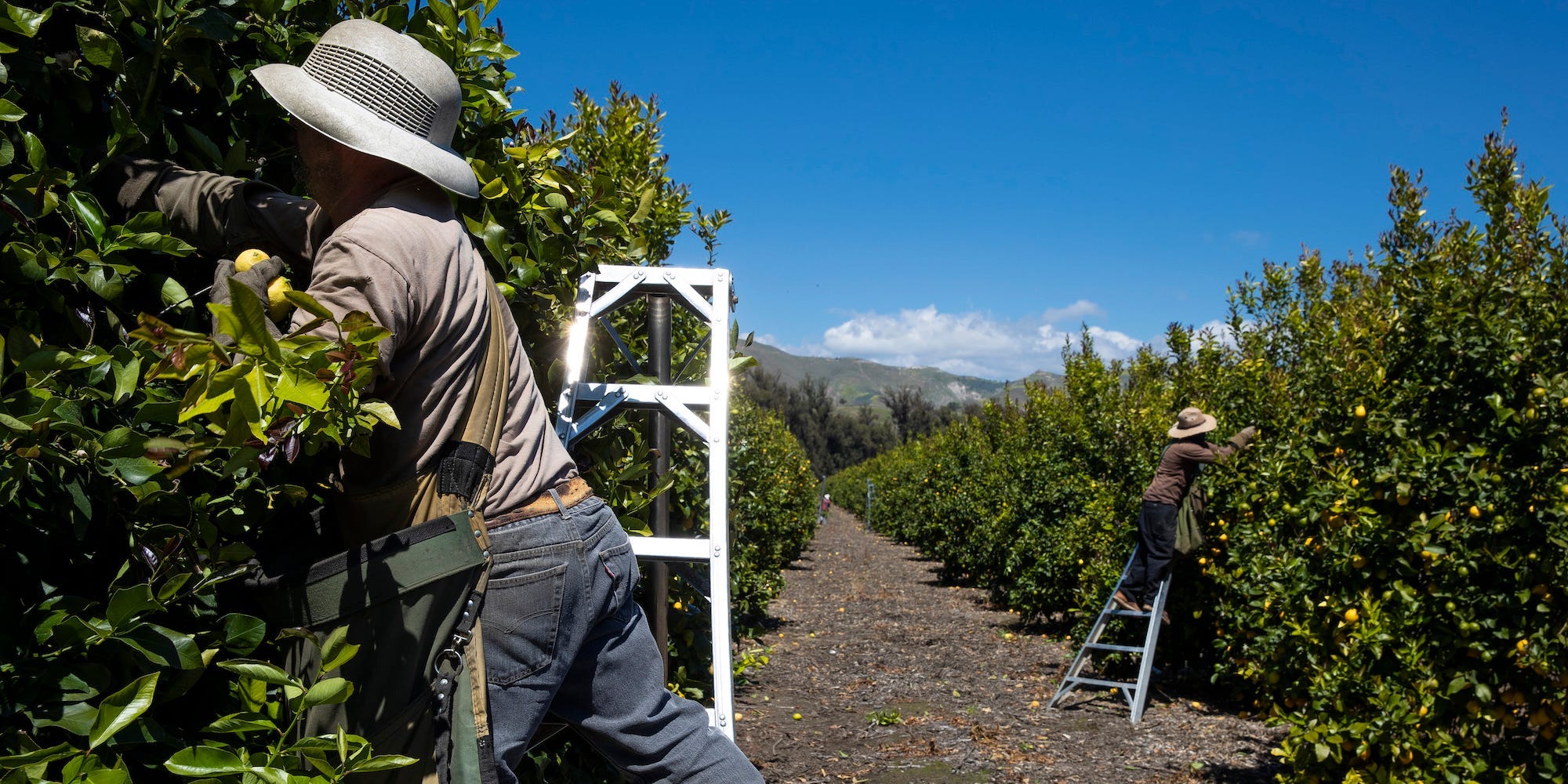
Getty Images/Brent Stirton
- Farm workers in California fear going hungry and homeless in the winter due to the pandemic and wildfires.
- Most farm workers earn the bulk of their income before the winter season since work during those months is limited.
- However, many have no been able to save due to job reductions and wage cuts as a result of the pandemic and wildfires.
- Many of the farm workers are not authorized to work in the US and were also ineligible for federal aid.
- Visit Insider’s homepage for more stories.
As the winter months approach some farm workers in California are worried that hunger and homelessness await them.
The Los Angeles Times reported that in normal times with a pandemic and wildfires, farm workers are able to save money that would help get them through the winter when production is limited. That’s not the case for some this year.
Jose Luis Hernandez told the Times that he normally has money saved to get him through these next few months but the pandemic and wildfires have left him in debt to a friend and struggling to make ends meet.
“I haven’t saved anything,” he told the Times.
National Geographic reported last month that wildfire caused job cuts and reduced hours. Farm workers faced exhaustive conditions including smoke and high heat but many kept working because it was the time of year they earned the bulk of their yearly income.
"There's just no option to not work," Sarait Martinez, the organizing director of Californians for Pesticide Reform told National Geographic.
"In heat, COVID, or fires, you just have to keep working," Martinez, whose two parents are farm workers added.
Additionally, half the farm workers in the country don't have legal permission to work in the US and while considered essential during the pandemic, they lack the benefits and safety nets that were implemented to help offset the impact of the pandemic.
The Times reported that farm workers who are undocumented lost an average of 25% of their wages between February and April.
Farm workers in the San Joaquin Valley area have especially been hit hard.
"It's not looking good for families here in the valley," Elvira Ramirez, executive director of Catholic Charities of the Diocese of Stockton told the LA Times. "These families are going to be in big trouble."

